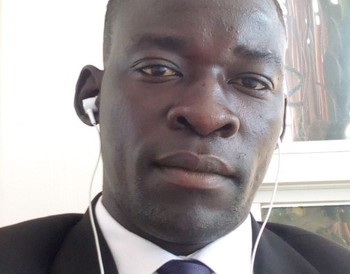Opinion: Wrong war and the search for peace in South Sudan

South Sudan has and is continuing to dominate the world agenda for conflict settlement from 2013 to date. The search for total peace and stability in Africa's youngest state remains the difficult examination for both the Inter-governmental Authority on Development (IGAD) and the continental body, the African Union.
The fact that the parties to the conflict have just concluded exchanging blames in Khartoum in the past months, they have brought home a doubtful token of peace pact which needs local motivation and acceptance.
South Sudan gained independence in 2011 but quickly entered into a bloody civil war in December 2013 after political differences between President Salva Kiir and his former deputy Dr. Riek Machar turned violent.
The war was purely connected to the power struggle between the two bitter foes.
Whether IGAD and AU boasted about the signing of the peace agreement by the South Sudan warring parties recently, the peace is still being received with scepticism especially by some western countries which believe that the deal is unsustainable.
This peace accord is the second in the row mediated by IGAD with the help of AU after the 2015 deal collapsed in 2016.
During the negotiations period in Khartoum and Ethiopia, both factions repeatedly expressed their frustrations on the negative effects caused by the brutal and bloody violence.
In this war, the crimes committed against civilians mostly women, children and the elderly, are indescribable. It has also uprooted an estimated 2.5 million people as refugees currently in the neighbouring countries.
Our leaders have never given satisfying answers to the people of South Sudan as to why in the first place they inflamed the young nation. What comes from their mouths is always the description of the war they authored as “senseless war.”
Although this description shows that our leaders accepted that they have waged a wrong war against the nation, but the question is, can they also accept to face the right justice for the crimes inflicted on civilians by this senseless or wrong war?
Local media reported recently that authorities seem less interested or don’t want people to talk about Hybrid Court meant to try suspects of war crimes.
They used the connotation that accountability will deviate people's focus and commitment to peace. If this is true, then efforts to make real peace and re-create national cohesion will be a waste.
However, it will be shameful for the government or whoever in the system to reject or ban the advocacy for a Hybrid Court in the war-torn state.
Similar war tribunals have been established in some countries such as Rwanda, Sierra Leone, South Africa, and Liberia just to mention but a few. The solid reason is to bring the affected communities or people to terms with conflict….that is to plant the spirit of forgiveness and reconciliation in their hearts.
Whether this Hybrid Court will catch the big fish or not, it is important to heal broken hearts as well as encourage true reconciliation among the South Sudanese communities.
It must be understood that when suspects are tried in an independent court of law, it will touch and usher forgiveness in the hearts of the people especially those armed with anger because of the crimes inflicted on them.
Without accountability for these crimes, the search for everlasting peace and stability in South Sudan is bleak. The truth is, we don’t need to worsen or create another conflict or a “happy and unhappy class” again or in future by letting go unpunished the crimes.
Again, if there is no justice for the war crimes, we will never convince our brothers, sisters, fathers, and mothers in the refugee camps out of the country that there is peace back home.
We must be very honest to ourselves and tell the truth. The Hybrid Court, Truth Commission, and other mechanisms should really be prioritized.
Peace is precious and everybody wants it but the wrong war waged by our leaders is making the search for peace and stability in South Sudan very complicated.
The author Mr. Joseph Oduha is a South Sudanese journalist. He can be reached by abunabet@gmail.com
The views expressed in ‘opinion’ articles published by Radio Tamazuj are solely those of the writer. The veracity of any claims made are the responsibility of the author, not Radio Tamazuj.